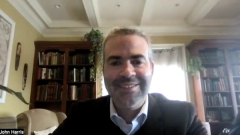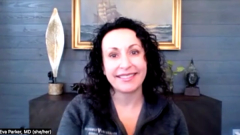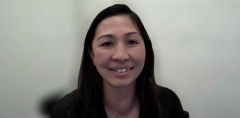
Dr Robert Sidbury on Implementing Value-Based Care Initiatives in a Pediatric Dermatology Practice
Robert Sidbury, MD, MPH, FAAD, division head of dermatology at Seattle Children's Hospital and professor of pediatrics at the University of Washington School of Medicine, discusses implementing value-based care initiatives in a pediatric dermatology practice.
This content was produced independently by The American Journal of Managed Care® and is not endorsed by the American Academy of Dermatology.
Robert Sidbury, MD, MPH, FAAD, division head of dermatology at Seattle Children's Hospital and professor of pediatrics at the University of Washington School of Medicine, gave advice on implementing value-based care initiatives in a pediatric dermatology practice. He also discussed delivering high-quality care to patients while navigating reimbursement challenges and ensuring financial stability.
Transcript
Do you have any advice for implementing value-based care initiatives in a pediatric dermatology practice, such as patient engagement, care coordination, and outcome measurement?
This may be where things are a little less generalizable. I work at a pediatric hospital where all of those things are part of the deal. For instance, multidisciplinary care is huge. I work in a hospital where, on my floor, the very next room are the rheumatologists, one room down are the gastroenterologists, so it's very easy to have sort of collaborative multidisciplinary care.
Now, that can be taken outside the hospital to clinics. Larry Eichenfield [Lawrence Eichenfield, MD, chief of pediatric and adolescent dermatology at Rady Children's Hospital in San Diego] just published a paper about a
How do you navigate reimbursement challenges and ensure financial sustainability while delivering high-quality care to patients?
That is a huge question and a challenge every day. I think for everybody who practices, I think it's probably always been true, and probably every era thinks that there are unique forces at play that make it harder now than ever before, but it sure seems to be the case now.
Speaking specifically of pediatric hospitals, cashflow metrics are lower than they've ever been. Pediatric hospitals are kind of awash in red ink for a number of reasons. The tripledemic (flu, COVID, RSV [respiratory syncytial virus]) sort of overwhelmed hospitals, and they've yet to catch up because, every season, there's going to be a new rhythm to at least some of those infectious diseases.
Payer mix is challenging, increased costs. Our hospital, in particular, and I think many, have been forced to employ a lot of traveling nurses to fill gaps and shortages in nursing care, and that's a more expensive thing. Superimpose all of that sort of longer term stays of patients in the hospital, superimpose all of that on more difficult payer mixes, and, in fact, declining births. In this country, fewer births mean fewer patients needing procedures—for instance, surgical procedures, ear tubes, those sorts of things that, when you're thinking just strictly from an economic perspective, are very important.
So, increasing costs, decreasing revenue, correspond to a really difficult environment. I think, basically, trying to be as efficient as you can be, while also minding those sorts of things we talked about with your earlier question in terms of hearing your patients and making sure that you're working maybe faster but also better.
Newsletter
Stay ahead of policy, cost, and value—subscribe to AJMC for expert insights at the intersection of clinical care and health economics.



































































